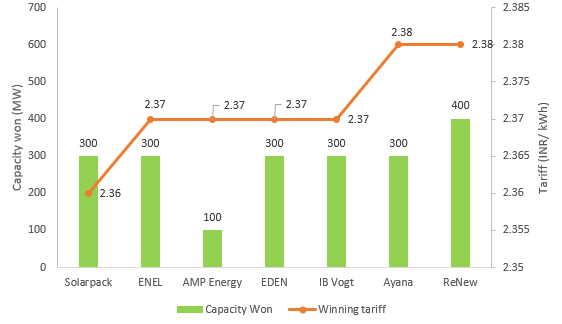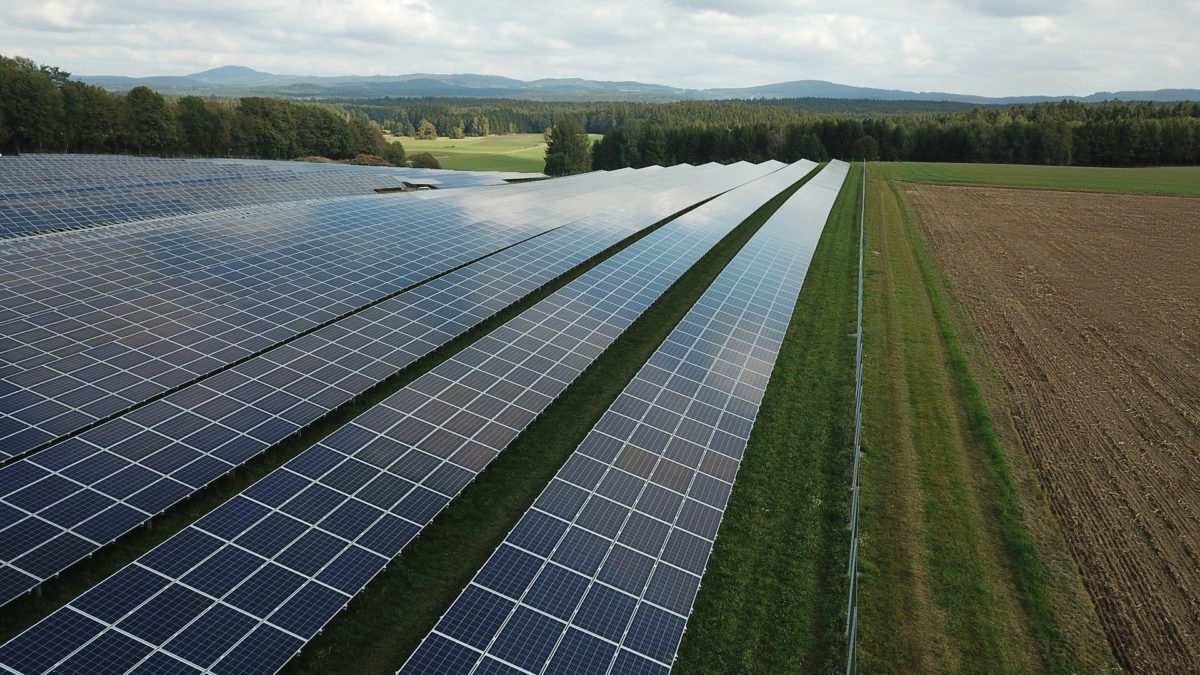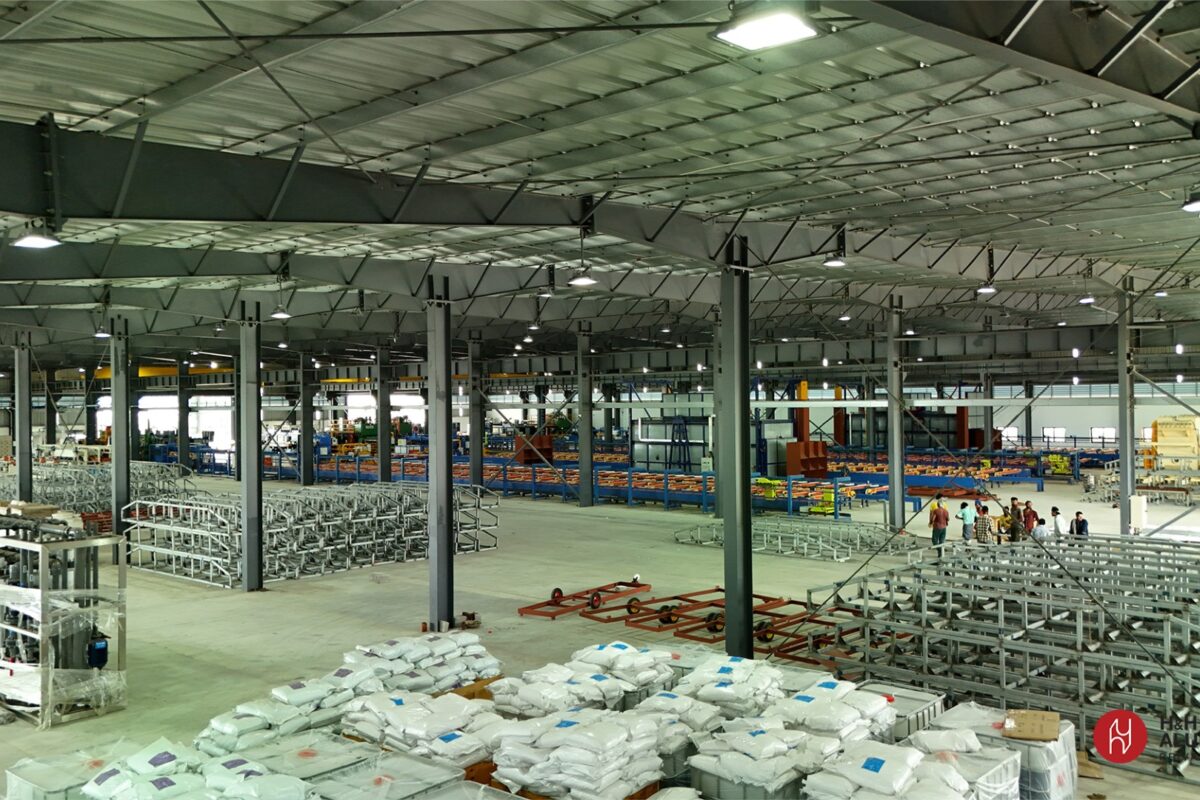The 2 GW solar auction held by the Solar Energy Corporation of India (SECI) attracted an historic low solar electricity tariff of Rs2.36/kWh from Spanish developer Solarpack, which secured 300 MW of project capacity, according to data shared with pv magazine by the National Solar Energy Federation of India.
The procurement exercise saw all the grid connected capacity allocated for Rs2.36-2.38/kWh with the other successful bidders Goldman Sachs-backed Renew Power, which secured 400 MW of project capacity; 300 MW slices for Italy’s Enel, French firm Eden Renewables, IB Vogt Singapore, and U.K. investor-backed Ayana Renewable Power; plus 100 MW of capacity for AMP Energy.
Commenting on the results, consultant JMK Research noted the safeguarding duty applied by the government on Chinese and Malaysian solar cells and modules is due to wind down this month.
“The key trigger for this kind of low tariff is zero safeguard[ing] duty for developers and pass-through from basic custom duty under [a] change in-law provision in this specific period, which are likely to significantly reduce project costs,” said the consultant in a statement. “Most of the winners are international developers. Hence, access to low-cost financing can also be the key reason for such aggressive tariffs.”

JMK Research
Indian solar manufacturers, however, have petitioned the government to extend the safeguarding duty for another four years, and a decision is expected on Friday.
JMK Research pointed out successful bidders Solarpack, Enel, and IB Vogt have no solar project pipelines in India and may be preparing to rapidly expand their presence in the nation. AMP Solar has a project pipeline of only 100 MW plus small projects under the open-access, corporate PPA [power purchase agreement] model.
Last week’s tender was oversubscribed with at least a dozen developers submitting bids for more than 4.3 GW of capacity.
This content is protected by copyright and may not be reused. If you want to cooperate with us and would like to reuse some of our content, please contact: editors@pv-magazine.com.









10 comments
By submitting this form you agree to pv magazine using your data for the purposes of publishing your comment.
Your personal data will only be disclosed or otherwise transmitted to third parties for the purposes of spam filtering or if this is necessary for technical maintenance of the website. Any other transfer to third parties will not take place unless this is justified on the basis of applicable data protection regulations or if pv magazine is legally obliged to do so.
You may revoke this consent at any time with effect for the future, in which case your personal data will be deleted immediately. Otherwise, your data will be deleted if pv magazine has processed your request or the purpose of data storage is fulfilled.
Further information on data privacy can be found in our Data Protection Policy.